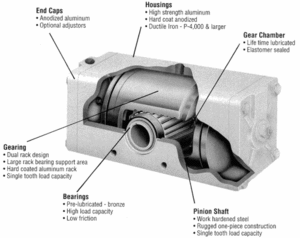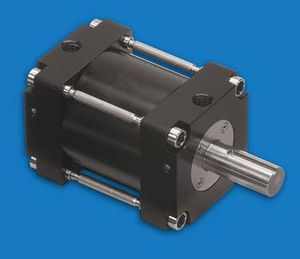Rotary Actuators
Rotary Actuator is an actuator that produces a rotary motion or torque.The simplest actuator is purely mechanical, where linear motion in one direction gives rise to rotation. The most common Actuators though are electrically powered. Other actuators may be powered by pneumatic or hydraulic power, or may use energy stored internally through springs. The motion produced by an actuator may be either continuous rotation, as for an electric motor, or movement to a fixed angular position as for servos and stepper motors. A further form, the torque motor, does not necessarily produce any rotation but merely generates a precise torque which then either causes rotation, or is balanced by some opposing torque.
Rotary actuators perform the same function as linear actuators while utilizing a different motion. Instead of providing motion over a single axis, rotary actuators use rotation through a fixed arc. As a result, rotary actuators offer benefits such as the ability to operate in limited space and the production of instant torque in either direction.
Applications
Rotary actuators are used in a vast range of applications. These require actuators of all sizes, power and operating speed. These can range from zero power actuators that are only used as display devices, such as air core gauges. Others include valve actuators that operate pipeline and process valves in the petrochemical industry, through to actuators for large civil engineering projects such as sluice gates and dams.

